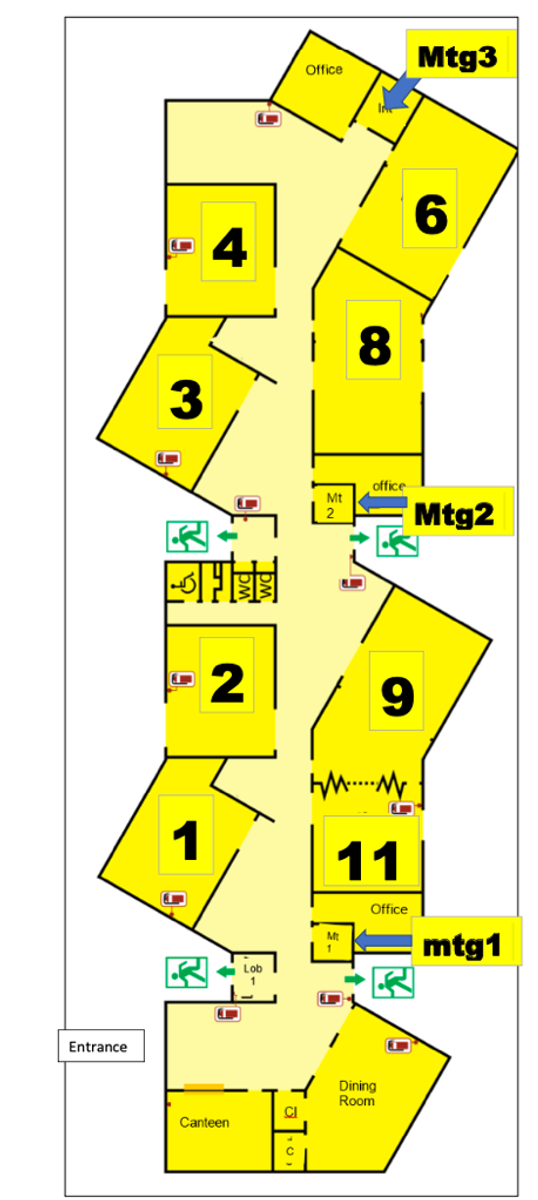Strategic Development & Organisation
Ms. Jodie Connell - Deputy Principal

Strategic Development & Organisation
Ms. Jodie Connell - Deputy Principal
The importance of feedback in assessment
Over the next week or so, you will start to see feedback on your PAM account on your child’s progress to date. The SIMON Learning Management System integrated into the Parent Access Module (PAM) provides timely results and feedback at your fingertips. It is just a matter of clicking on the results in PAMs to bring up a combination of formal feedback, rubric outlines, and further details of the assessment. This allows you to discuss the results in real-time with your child to set goals and strategies for continued improvement.
In recent years there has been a fundamental change in how schools think about the role and nature of assessment and the vital role feedback plays in significantly improving learning outcomes for all students. The driver of this change has been the overwhelming weight of evidence and research from international experts such as Professor John Hattie, who have shown how learning outcomes significantly improve when teachers use assessment to provide ‘feedback information’ about aspects of a learner’s performance or understanding. Feedback, Hattie states “fills a gap between what is understood (How am I going?) and what is aimed to be understood (Where am I going?).”
We are consistently asked ‘how best to utilise the feedback given and how to discuss it with my child?’ Below are some essential points in making the most of the feedback provided by your child’s teacher.
Types of feedback used with learners
Feedback is one of the most effective teaching and learning strategies and has an immediate impact on each child’s learning progress. This feedback can be a teacher-to-learner, learner-to-teacher, self-assessment, and feedback to and from peers.
The importance of descriptive feedback
Whilst grades/marks are given for tests, assignments, and School Assessed Classwork (SACs), descriptive feedback is typically provided on a day-to-day basis by teachers in their interactions with students. They can be provided but not limited to a comment, rubric, or verbal feedback.
Descriptive feedback can emphasise the strengths of the child’s work and areas that they may need to work on and what they need to do next. The feedback we provide to students firstly focuses on what the student could make, say, do, or write, while secondly providing detail on what the student is next ready to learn, and what they can do to improve. It is important that parents and guardians support the importance of descriptive feedback and not just focus on the grades.
How to support feedback given to your child
You can support teachers’ feedback to your child by regularly talking with them about specific pieces of work that their teacher has provided feedback on. Some guiding questions could include:
It is good to start with establishing that your child understands what is being discussed. Encourage your child to note down any questions they may have about the feedback given, and encourage them to follow up with questions for their teacher in a timely fashion.
If your child feels that they are making mistakes, do not understand or can’t do something immediately, remember to reinforce that making mistakes, or struggling to understand or do something, is a normal part of the learning process. Stay positive about your child’s learning. It is important to remember that each child is different; some will find elements of their learning program more challenging than others.
If you have concerns please speak with your child’s homeroom teacher or the relevant subject teacher. Some questions that may be useful could include:
Interim Reports
Next week (Thursday 14th March) parents will receive their child’s interim reports. The structure and purpose of these is to report to you on the Work Habits demonstrated by students over the first part of the school year. The identified and reported on behaviours align with our commitment to a Whole School Approach to Positive Behaviour.
Staff base the decisions of these reports on each student individually, but also how students have interacted with one another in the classroom environment over the course of Term 1 2024. As parents, you should be aware of the information contained within these reports prior to reading them and be ready to celebrate success and identify opportunities for improvement.
The interim reports should be a conversation starter allowing you to open the dialogue with your child/ren to have a closer insight into their learning journey and ensure they are maximising their time at Mary MacKillop College in order to grow as young independent learners. If there is something that is reported on that is of concern to you, or you would like to hear more about the successes of your child/ren, please ensure you book in a time at our upcoming Parent-Student-Teacher Interviews.
Parent–Student–Teacher Interviews
Parent–Student–Teacher interviews are important opportunities for parents to make meaningful connections with teachers and put into place clear strategies to drive student improvement. Encouraging young people to achieve personal bests, avoiding comparison between themselves and others and recognising what they have accomplished and what they may be able to do better to achieve even more, is crucial to driving student improvement.
Face-to-face Parent–Student–Teacher interviews will be held in the Senior School Building on Thursday 21st March between 4pm and 7pm and Wednesday 27th March between 4pm and 7pm. Bookings for these will close at 5.00 pm Wednesday 20th March. Please note the rooms staff will be located in are on the booking system, and a map of the Senior School Building is provided to assist parents in planning their appointments.
It is hoped that the Parent-Student-Teacher interviews are a three-way conversation between all parties and that the student is involved in the interview, and has a voice in the conversation to celebrate their successes but also to plan learning goals for the term ahead.


Student Role | Teacher Role | Parent Role |
To plan what they will share and discuss regarding their strengths and achievements and goals.
To demonstrate what they know at the conference.
To answer questions at the conference.
To help make plans for achieving goals.
To reflect on the conference and use it in future learning. | To plan what they will share and discuss about the child’s strengths, achievements and areas for improvement.
To facilitate the discussion by supporting the child and parents through questioning and clarifying.
To provide honest and constructive feedback. To provide positive feedback and encouragement, and to set goals for future learning.
To guide the planning of strategies for supporting the child’s learning at school and at home.
To keep notes.
To monitor and follow plans. | To read their child’s report before the conference.
To find out about their child’s learning and development.
To provide positive feedback and encouragement for future learning.
To help make plans for supporting their child’s learning at home. |
Learning is a marathon, not a sprint!
Students have begun the year at a good pace, they have set themselves achievable goals and are working towards them with confidence and enthusiasm. However, as the supporters on the sidelines, we need to remind them that their learning journey is a marathon, not a sprint. Finding the motivation that continues to carry students through the year, that matters long-term and that means that they sustain the habit of learning, consistently, week by week, year by year will ensure the marathon continues and students do not run out of steam.
As parents, you can support and guide your children along their journey by using the following strategies:
Students need to remember if we try to go too fast, we will run out of gas. An uphill run may require a lot from us, but even with this immediate challenge, we have to keep some energy, patience, and passion in reserve for the next leg of the race to come. If you feel you need further support in this marathon, please don’t hesitate to reach out to your child’s Homeroom Teacher, or make a time at the upcoming Parent-Teacher-Student interviews
NAPLAN Tests
The National Assessment Program – Literacy and Numeracy (NAPLAN) for Years 7 and 9 students are held in March each year. In 2024 the NAPLAN Online test window is between Wednesday 13th March and Monday 25th March. NAPLAN tests assess student knowledge and skills in writing, reading, conventions of language (spelling, grammar and punctuation) and numeracy. The results of the tests provide information for students, parents, teachers and principals and can be used to improve student achievement.
NAPLAN Online delivers numerous benefits including:
All students are expected to participate in the NAPLAN Online tests. Catch-up tests will be available for individual students who are absent on test days up to and including Monday 25th March 2024.
Support can be arranged for students with disabilities if the student regularly uses similar support for classroom assessment tasks. Letters have been sent home to families requesting consent for adjustments.
Exemptions may be granted to students with significant intellectual disabilities and to students who have been learning English for less than one year. If your child is eligible for support due to disability or exemption, you should discuss this with myself or Erica Masters prior to the tests. Parental consent is required before any support due to disability or exemption is granted.
Students may be withdrawn from NAPLAN by their parents or carer. This is a matter for consideration by parents and carers in consultation with the principal. If, after consultation, you decide to withdraw your child, you must sign a student withdrawal form.
Later in the year you will receive your child’s personal NAPLAN report. The report will describe your child’s particular skills in reading, writing, conventions of language (spelling, grammar and punctuation) and numeracy. The report will also show how your child performed in relation to national minimum standards. These describe the minimum acceptable standards for students across Australia.
We are confident that the information you receive as a result of your child’s participation in the NAPLAN tests will be valuable in helping you to assess your child’s progress in literacy and numeracy.
For more information about NAPLAN Online, please visit the VCAA website at http://www.vcaa.vic.edu.au/ or the NAP website at www.nap.edu.au
Elevate Education Parent Webinar Seminars
Elevate Education are continuing to provide parents of Mary MacKillop Catholic Regional Student College exclusive access to their Parent Webinar Series for Term 1, 2024.
To reserve your spot, you can register for free below,
Wednesday 13th MarchHow You Can Make Technology an Ally (& Not the Enemy!)
Click here to register for free
Here’s what Elevate will be covering on the night:
✅ Reducing your child’s dependence on technology
✅ Using apps to prevent your child procrastinating
✅ Using technology to enhance your child’s learning
Wednesday 27th March How You Can Help Improve Your Child’s Memory
The webinars are run live online from 6.30pm – 7.30pm (AEST) where the presenter will share Elevates key research and skills and will conduct a live Q&A so you can ask them questions directly. If you are unable to make the webinar, don't worry! If you sign up to attend, you'll receive the webinar recording on Thursday morning.
Should you have questions or would like to contact Elevate directly, their details are listed below.
✉️ auscoaching@elevateeducation.com
💻 https://au.elevateeducation.com
👍 https://www.facebook.com/ElevateEd/
Best wishes to all in their educational pursuits during 2024.